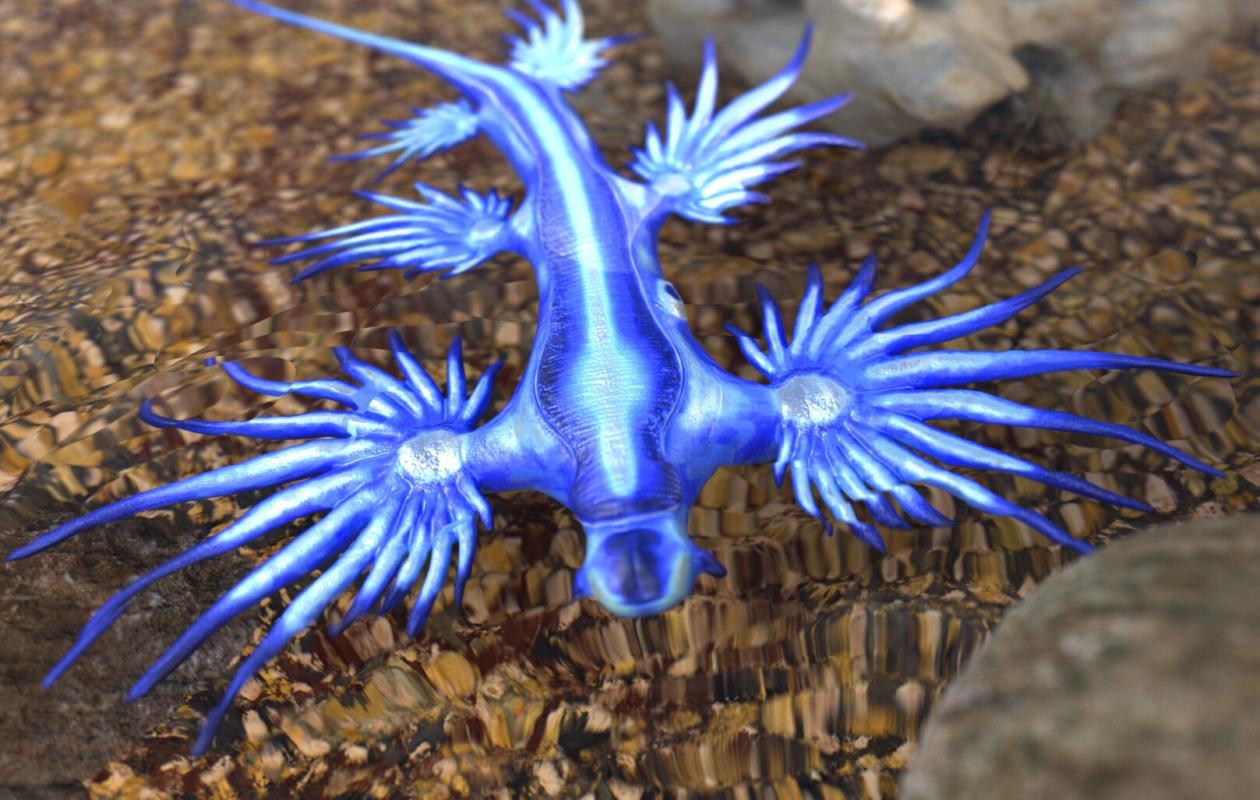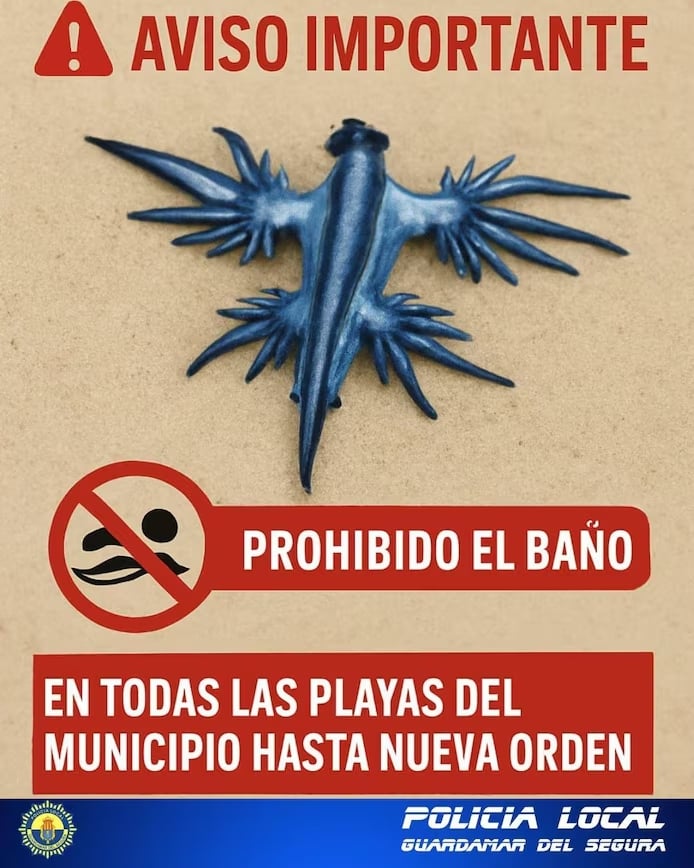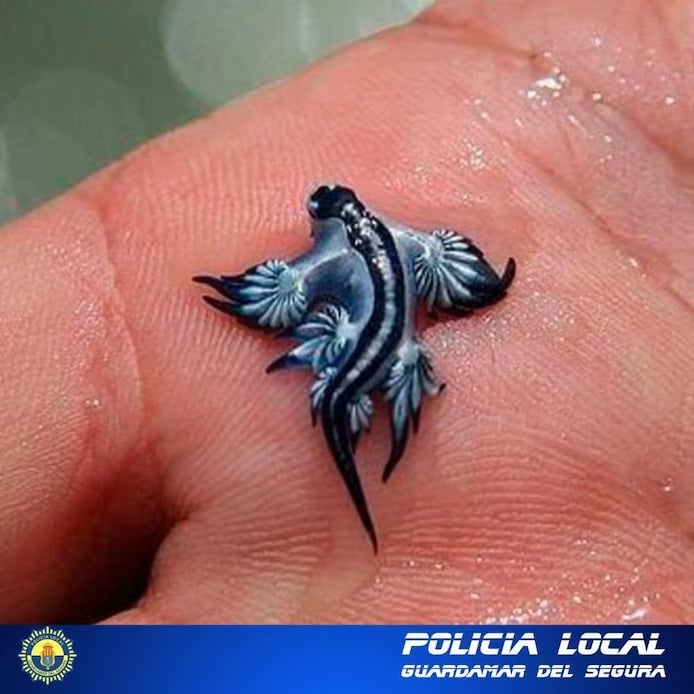
Une station balnéaire espagnole interdit la baignade à cause de cet étonnant animal
Police in the seaside resort of Guardamar del Segura, on Spain's Costa Blanca, have imposed a temporary swimming ban for an unusual reason: the presence of blue dragons. These tiny sea creatures are fascinating, but also dangerous. "Be careful," authorities urge.
Glaucus atlanticus , also called Atlantic glaucus, blue dragon or sea swallow, is a gastropod mollusk. It is a small sea slug, described as elegant in its shape and color, mixing white and pearl gray with different shades of blue. These small dragons, seemingly harmless, feed only on jellyfish.
Fearsome toxins
But this is what makes it so special: by feeding on stinging gelatinous animals, and even the very large and very dangerous physalia, or Portuguese galley, this gastropod preserves their venom for its own use.
The blue dragon is a true master at using the toxins of other animals to defend itself and survive. It is itself immune to jellyfish toxins, and it stores their nematocysts, their venomous cells, in small sacs spread across its skin. In case of danger, it empties them.
This makes it even more dangerous to us than its own prey, as this small animal is particularly attractive to children. And we don't always know what type of toxin it has previously taken from its prey, or even what cocktail it is ready to administer to anyone who might come to bother it.

A terrible pain
According to Spanish coastal authorities, its sting can cause severe pain, as well as nausea and vomiting. They recommend seeking immediate medical attention if stung. In the most severe cases, it can lead to anaphylactic shock, an exacerbated allergic reaction that, in most cases, has serious and life-threatening consequences.
It's best to never touch the animal, even with gloves. In some cases, even the water around the blue dragon can become stinging if it feels threatened and releases toxins stored on its skin.

Quite rare in the Mediterranean
This slug is rarely seen in the Mediterranean, although it is common in the Atlantic and Pacific Oceans. However, according to media reports, eight specimens had already been spotted in the summer of 2021 off the coast of Guardamar and the neighboring town of Torrevieja, about thirty kilometers south of Alicante.
In its announcement of the swimming ban, local police yesterday referred to a "massive appearance" of blue dragons near Guardamar del Segura. According to the Spanish press, 11 km of beach has been closed to the public.
Yellow flag
Swimming has since been allowed again: "Swimming is permitted, but with caution," Spanish police said in an update Thursday. "The yellow flag is raised."
Commentaires (3)
Participer à la Discussion
Règles de la communauté :
💡 Astuce : Utilisez des emojis depuis votre téléphone ou le module emoji ci-dessous. Cliquez sur GIF pour ajouter un GIF animé. Collez un lien X/Twitter, TikTok ou Instagram pour l'afficher automatiquement.